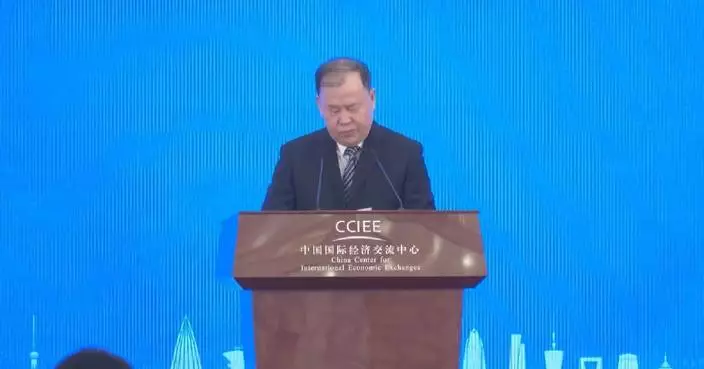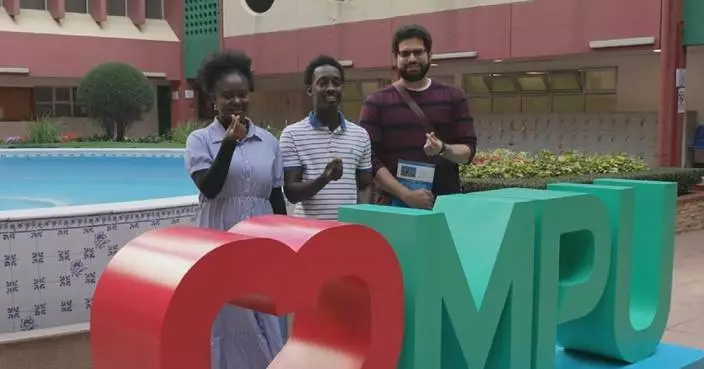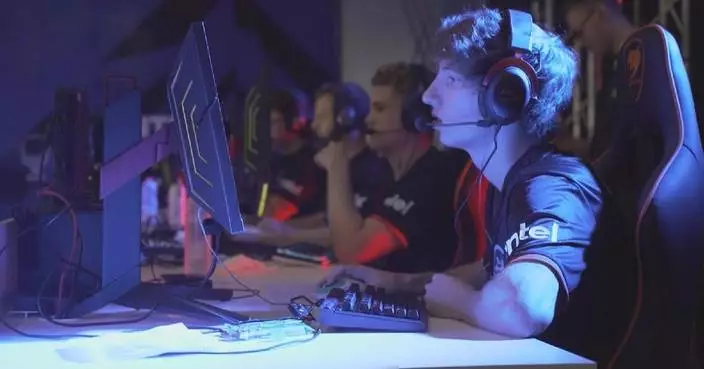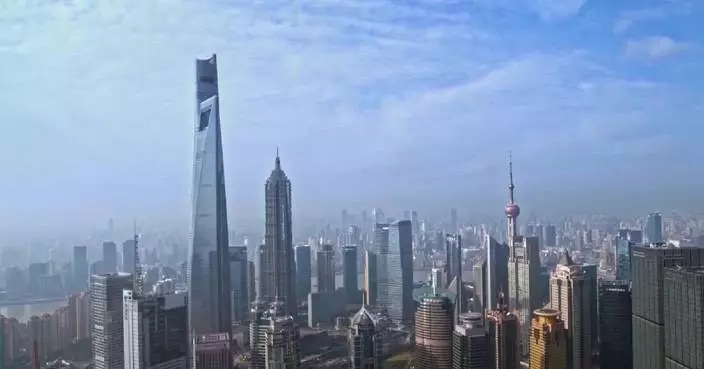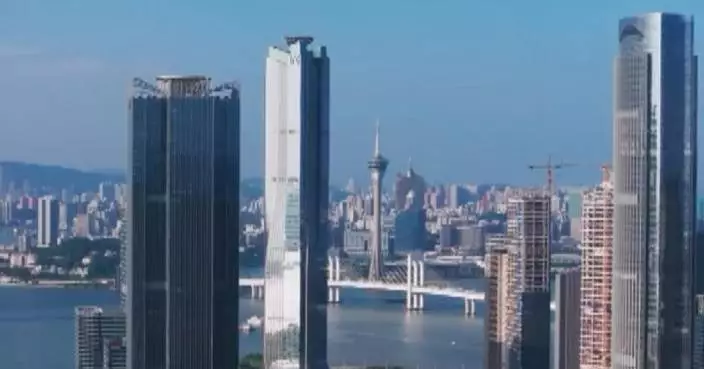China Media Group (CMG) aired a documentary Friday, which revisits a cultural exchange program participated by 200 young representatives from the Macao Special Administrative Region (SAR) this year.
The five-part documentary, titled "25 Years of Lotus Bond", was produced to mark the 25th anniversary of Macao's return to China. The documentary's first installment focuses on the young representatives from Macao who embarked on a cultural exchange tour across 10 provinces and cities on the mainland.
The tour was officially launched on Sept. 29, and concluded in Beijing on Oct. 25. Exchange events were organized by the Macao SAR government, the All-China Youth Federation and the Liaison Office of the Central People's Government in the Macao SAR.
"The program takes students to different parts of our motherland and teachers to different cities to learn and know more about the development of China," said Gong Zhiming, director of the Education and Youth Development Bureau of the Macao SAR.
During the tour, young people spoke with technology researchers and experienced Chinese traditional culture, which many said left a deep impression on them.
"We can see how the preservation of Chinese traditional culture is combined with modern buildings to bring out a commercial tourism atmosphere," said Lai Hon-cheng, participant in the tour.
"The tour makes more young people in Macao know [about the Chinese mainland], and encourages them to visit different parts of the motherland and spur development," said Lei Sio-chou, deputy head of the Macao Youth Federation. "[The program can] enable young people in Macao to better integrate into national development in different cities based on Macao's own characteristics, following their respective development interests and advantages," said Lo Iek-long, head of Macao Youth Federation.
Delegation members also expressed their gains during the tour, hailing the valuable chance to know about the motherland in depth. "This was the biggest gain in this tour, because I was able to personally experience the majesty and beauty of the Jinshanling Great Wall, and feel the history of our motherland," said Mario Ho Yau-kwan, member of the delegation.
All five episodes are scheduled to be aired from December 13 to 17 on CCTV-1, with subsequent broadcasts on CCTV-4 and CCTV-13.
Featuring five thematic episodes -- Love for the Home and the Nation, A Path of Diversity, The Flavor of Happiness, A City of Integration, and Gateway to the Future -- the documentary showcases the successful practices of "one country, two systems" in Macao under the strategic guidance of the central government.
On December 20, 1999, the Chinese government resumed its exercise of sovereignty over Macao and established the Macao Special Administrative Region.
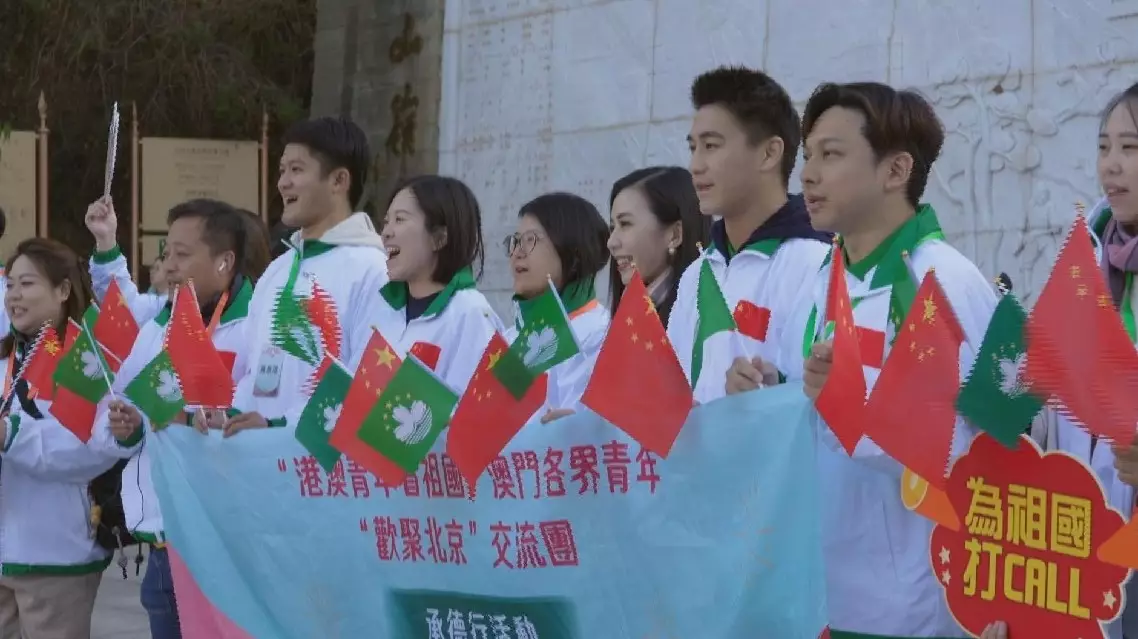
CMG documentary revisits Macao young representatives' mainland tour
EU is employing double standards in its electric vehicle (EV) policies, unfairly targeting Chinese EV imports with tariffs and subsidies, according to experts at the 17th Forum on WTO Laws and China opened in Guangzhou City of south China's Guangdong Province on Saturday.
One of the highlights was the release of a blue book titled "The EU's Industrial Subsidy Policy for Lithium Batteries, PV Products and Electric Vehicles in the Name of Green Transition", which claims that while continuing to impose anti-subsidy tariffs on imported Chinese electric cars, the EU is subsidizing domestic EVs, lithium batteries and photovoltaic products.
Shi Xiaoli, the book's lead researcher, claimed that while the EU restricts state aid that might cause market distortions, numerous exemptions still exist, which ultimately allows subsidies across these three sectors.
"For example, one of the exemptions is that even if a subsidy in a certain country distorts the EU market, even significantly, if it still aligns with the EU's long-term common interests, it can remain. The scope of European common interest projects is continuously expanding, and it includes these three industries," said Shi Xiaoli, Director, WTO Law Research Center.
The book reveals that EU member states heavily subsidize electric vehicles, with substantial support covering the entire industrial chain.
At the same time, the EU has recently introduced new tariffs of up to 35 percent on imported Chinese EVs. That's in addition to the existing 10 percent duty, which some experts deemed as counterproductive.
"We believe this policy is discriminatory. The EU acknowledges that Chinese electric vehicles have caused no harm to its EV sector. The EU's trade protectionist measures are in fact more detrimental to itself. While it may protect its market in the short term, once these measures are lifted, its technology and other aspects may fall even further behind," said Sun Xiaohong, secretary-general of the China Chamber of Commerce for Import and Export of Machinery and Electronic Products (CCCME).
A lawyer at the event argued that the EU's actions are not typical trade measures, but an attempt to curb China's EV sector growth.
"Subsidies for emerging industries exist in every country, including the United States and the European Union. Also, this time the European Commission initiated the case on its own authority, marking the first use of a special legal rule in the anti-subsidy investigation against Chinese export enterprises," said Pu Lingchen, Partner, Chance Bridge Law Firm.
The EU has given itself quite the ambitious goal - starting in 2035 all new cars sold will be emissions free.
Those involved in crafting of the blue book believed that EVs will be crucial in achieving this target. But they have also said that if Chinese imported EVs come with a higher price tag, then the EU's ambitious plan will certainly face difficulties.
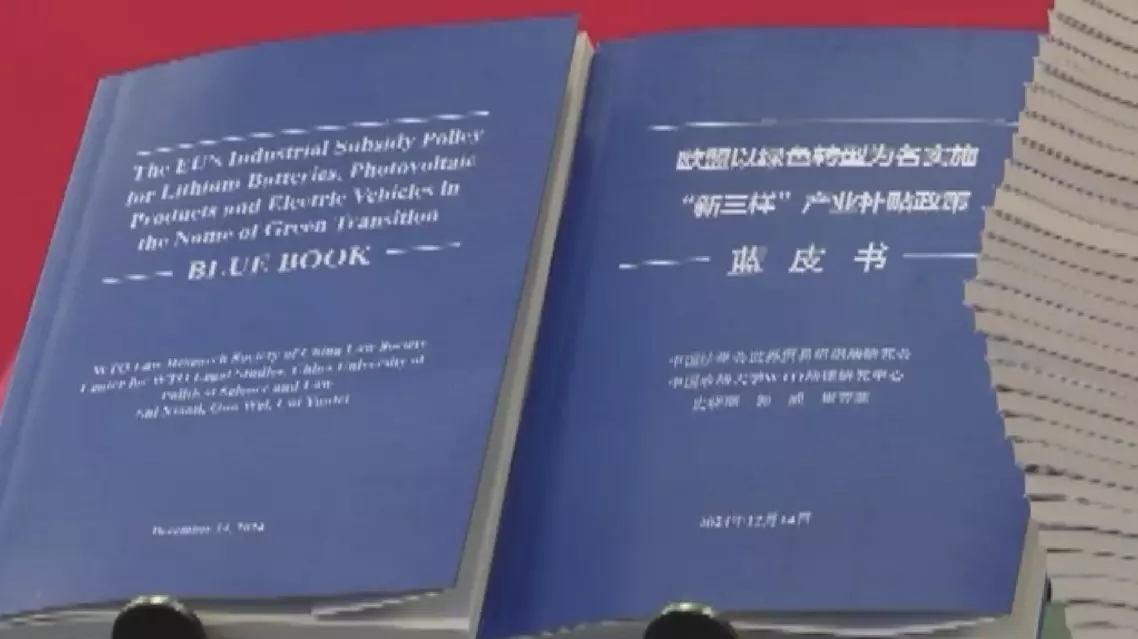
Chinese think tank criticizes EU's double standards on electric vehicles




